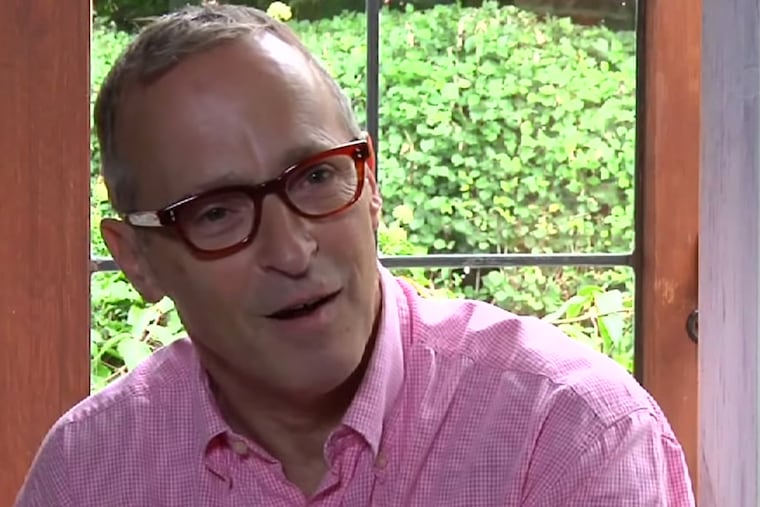'Do I Sound Gay?': Smart doc about speech and identity
Like many a creative endeavor, it started with a break-up. Writer David Thorpe split from his long-time boyfriend, and in that post-parting burst of self-improvement energy that has gripped us all at some point, he started to reevaluate himself.

Like many a creative endeavor, it started with a break-up.
Writer David Thorpe split from his long-time boyfriend, and in that post-parting burst of self-improvement energy that has gripped us all at some point, he started to reevaluate himself.
"Do I sound gay?" he asked.
That question led to his first documentary, with that question as title. While Thorpe ostensibly explores the sibilant consonants and careful enunciation that characterize what we have come to think of as "sounding gay," his film is really about his identity. And that is what makes Do I Sound Gay? more interesting than a documentary about speech pathology.
Thorpe is not happy with himself after his break up and he seeks the root of that unhappiness, ultimately figuring out he's not looking in the right place.
Thorpe begins his journey by going to a speech pathologist to "cure" what he sees as a problem. He talks to linguists about the nature of this "gay sound," whether it's a cultural construct or something inherent in gay men.
He also traces how it came to be part of popular culture - even if this "gay voice" wasn't labeled as such. Golden Age movies featured flamboyant sidekicks or slimy villains (think Clifton Webb) with particular speech patterns that were never labeled gay - in part because the Hays Code, the movie industry's moral guide, wouldn't allow it - but they might as well have been. Guys such as Paul Lynde, Rip Taylor, and Charles Nelson Reilly appeared regularly on primetime TV without ever actually coming out. Consider, too, the subtle inflections of Disney villains (The Lion King's Scar, voiced by Jeremy Irons, and Aladdin's Jafar, voiced by Jonathan Freeman).
Do I Sound Gay? is better when it gets personal. Thorpe turns to his own Southern childhood and asks his family when they first noticed that he sounded gay. Some of his relatives could pinpoint the moment they believed he changed his speech. A high school friend says it was during college, when Thorpe was able to come out of the closet, that he started to sound different. This is not my friend, she thought. This is someone different.
He also talks to other gay men about insecurities about their voices. Author David Sedaris says his ideal man would not sound like Hugh, his partner of many decades who is often a character in his essays. But they've had a successful relationship, and something as small as the sound of his voice is inconsequential.
Because, in the end, what matters is that they love each other, and they're happy - not that one of them speaks with a lisp.
Do I Sound Gay? *** (Out of four stars)
StartText
Directed by David Thorpe. With David Thorpe, David Sedaris, Dan Savage, Margaret Cho, George Takei. Distributed by Sundance Selects.
Running time: 1 hour, 17 mins.
Parents guide: No MPAA rating.
Playing at: Ritz Bourse.EndText
215-854-5909
@mollyeichel